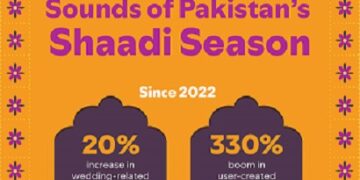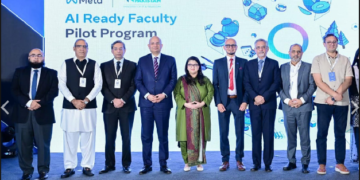LHW Programme tobacco concerns
Peshawar, November 2025 — The National Alliance for Sustainable Tobacco Control (NASTC) has formally raised alarm over the reported use of Pakistan’s Lady Health Worker (LHW) Programme in activities promoting tobacco industry–linked “harm reduction” products.
LHW Programme and Tobacco Harm Reduction
In a letter addressed to the Coordinator of the Lady Health Worker Programme in Khyber Pakhtunkhwa, and also to Coordinators of the Programme in Punjab, Sindh, Balochistan and Gilgit-Baltistan as well as to the Provincial and Federal Secretaries of Health and Tobacco Control Cells, the Alliance expressed deep concern about recent research initiatives involving LHWs in the promotion of so-called low-risk nicotine products under the label of “tobacco harm reduction.”
The Alliance stated that while reducing tobacco-related harm is an important public-health goal, the use of the LHW network to promote nicotine products represents a troubling extension of the tobacco industry’s global strategy to rebrand itself through so-called harm reduction initiatives. The letter cited a 2024 study published in Discover Global Society (Springer), which reported that Lady Health Workers had been engaged in a smoking cessation project that included offering tobacco harm reduction products to rural households.
NASTC emphasized that this approach is inconsistent with Pakistan’s public health priorities and risks compromising the neutrality and credibility of the LHW Programme, which serves as a cornerstone of the nation’s primary healthcare system.
LHW Programme’s Core Mandate
The LHW Programme, the Alliance noted, was established to deliver essential services in maternal and child health, family planning, immunization, and basic disease prevention. Tobacco control or nicotine product promotion does not fall within its defined mandate, and such activities may undermine public trust in this vital workforce.
NASTC further highlighted that Pakistan, as a Party to the World Health Organization Framework Convention on Tobacco Control (FCTC), is bound under Article 5.3 to protect public-health policies from the commercial and other vested interests of the tobacco industry. The World Health Organization and the FCTC Secretariat have repeatedly cautioned that the concept of “tobacco harm reduction,” particularly when linked to entities such as the Foundation for a Smoke-Free World, funded entirely by Philip Morris International, represents a form of industry interference rather than an independent public-health initiative.
Call to Action (LHW Programme tobacco concerns)
The Alliance called on provincial and federal health authorities to reaffirm that Lady Health Workers are not authorized to promote or distribute tobacco or nicotine products, and urged the Tobacco Control Cells at both federal and provincial levels to issue guidance reminding public health programmes to avoid any engagement with organizations connected, directly or indirectly, to the tobacco or nicotine industry.
It also urged the Ministry of National Health Services, Regulations and Coordination to ensure that any ongoing or future collaborations involving the LHW Programme are reviewed in accordance with Pakistan’s commitments under the FCTC and the National Tobacco Control Strategy.
Statement from NASTC (LHW Programme tobacco concernse)
“The Lady Health Worker Programme is one of Pakistan’s most trusted and effective public-health mechanisms. It must remain independent of all commercial interests and free from tobacco-industry narratives,” said Usman Afridi, Convener NASTC. “Allowing the language of harm reduction to infiltrate public health programming threatens decades of progress in tobacco control and undermines Pakistan’s leadership in implementing the WHO FCTC.”
NASTC reaffirmed its commitment to supporting government efforts to safeguard public health and uphold Pakistan’s strong record of compliance with international tobacco-control commitments. The Alliance called for continued vigilance to ensure that the country’s health programs remain dedicated solely to evidence-based, independent, and sustainable public health goals.
In Urdu :https://dailytimeline.pk/?p=9431

























